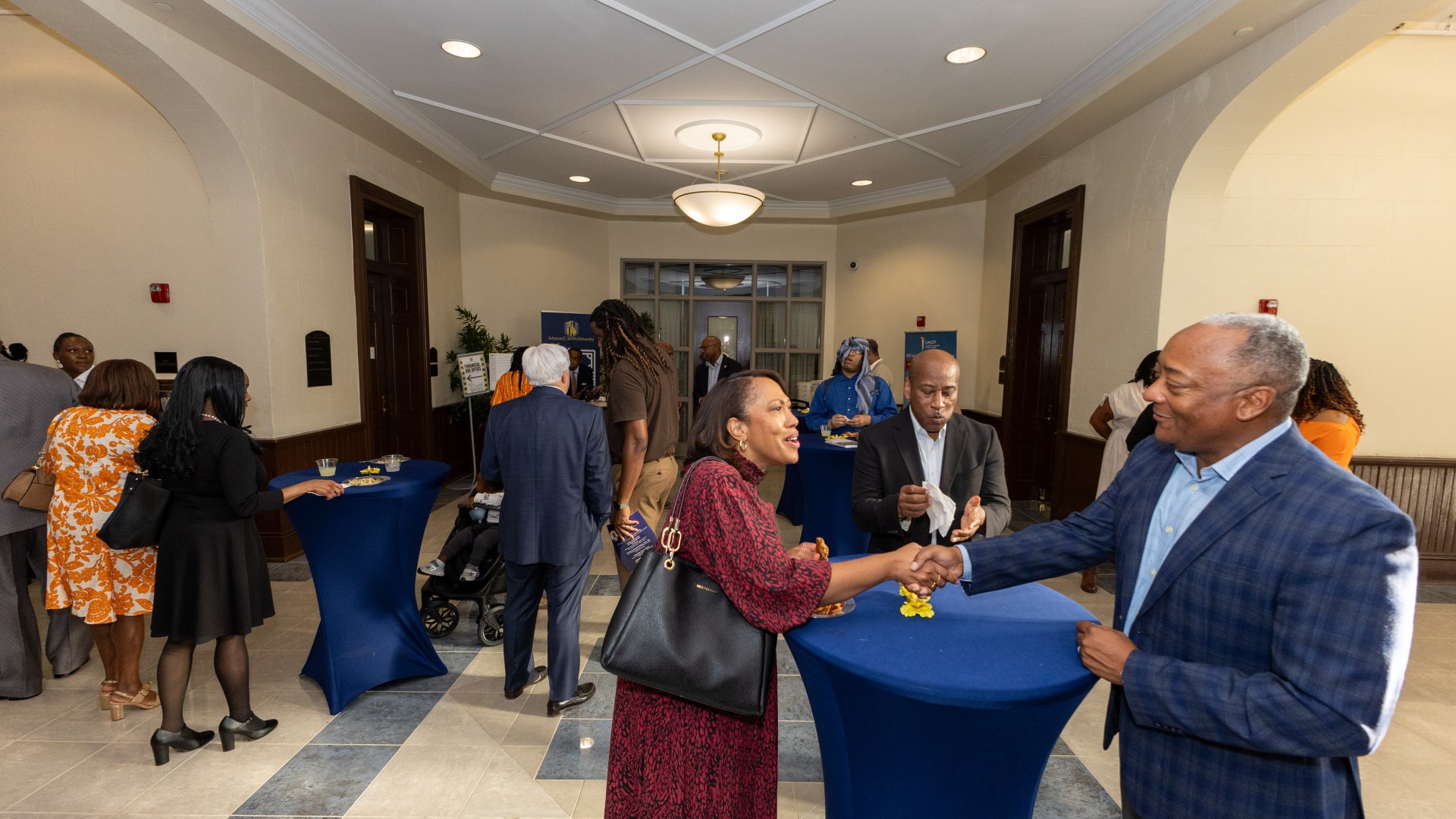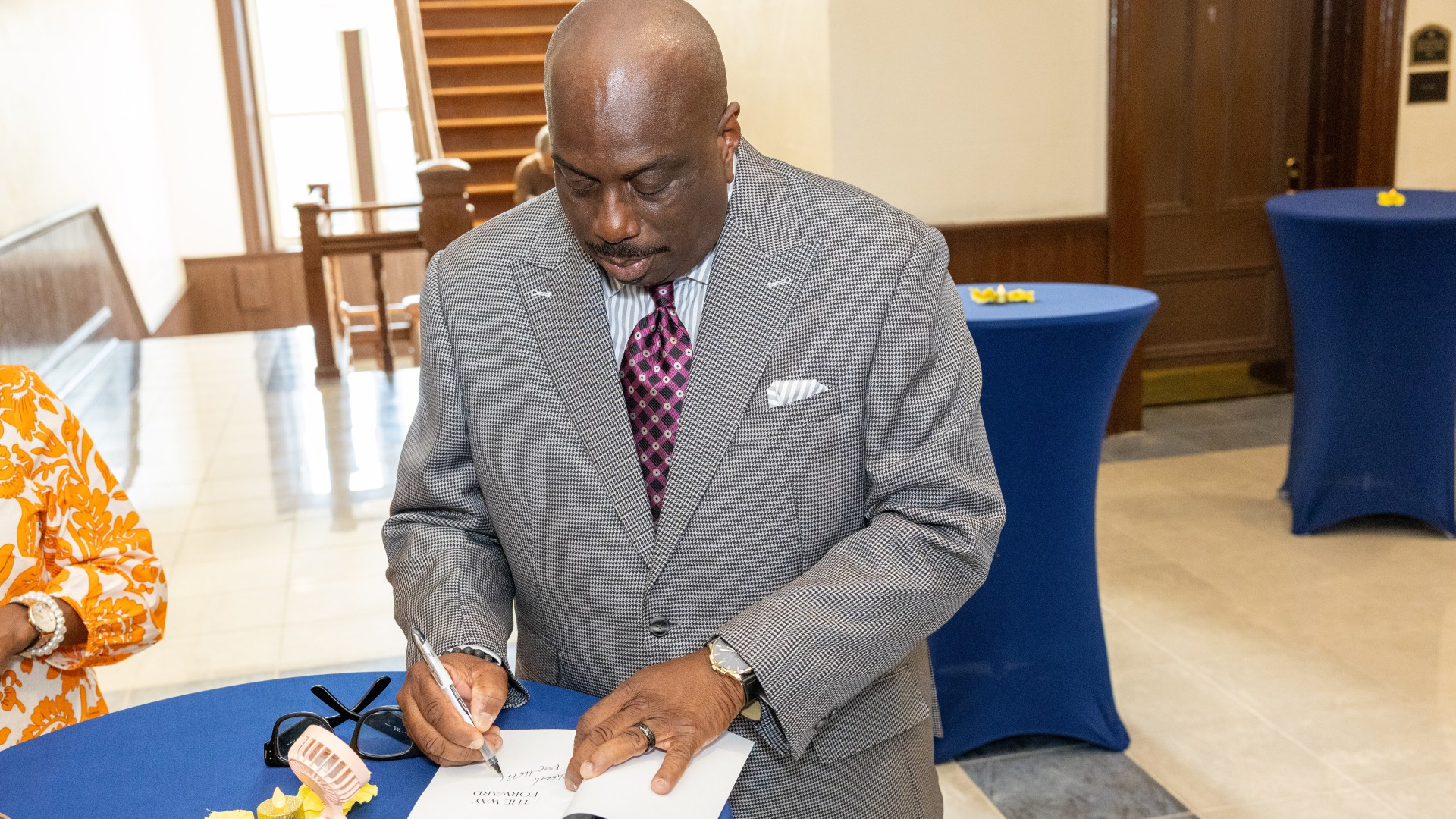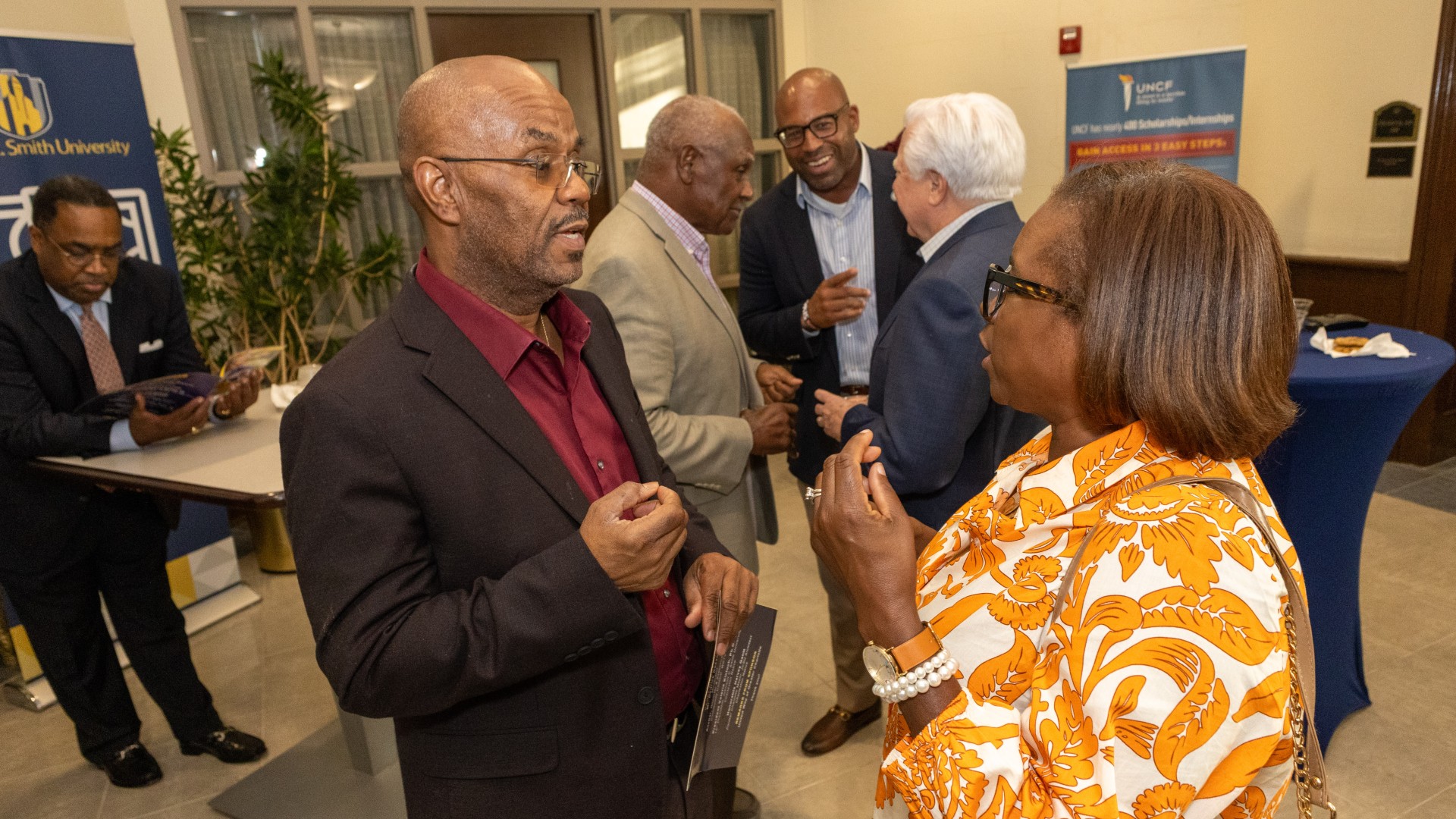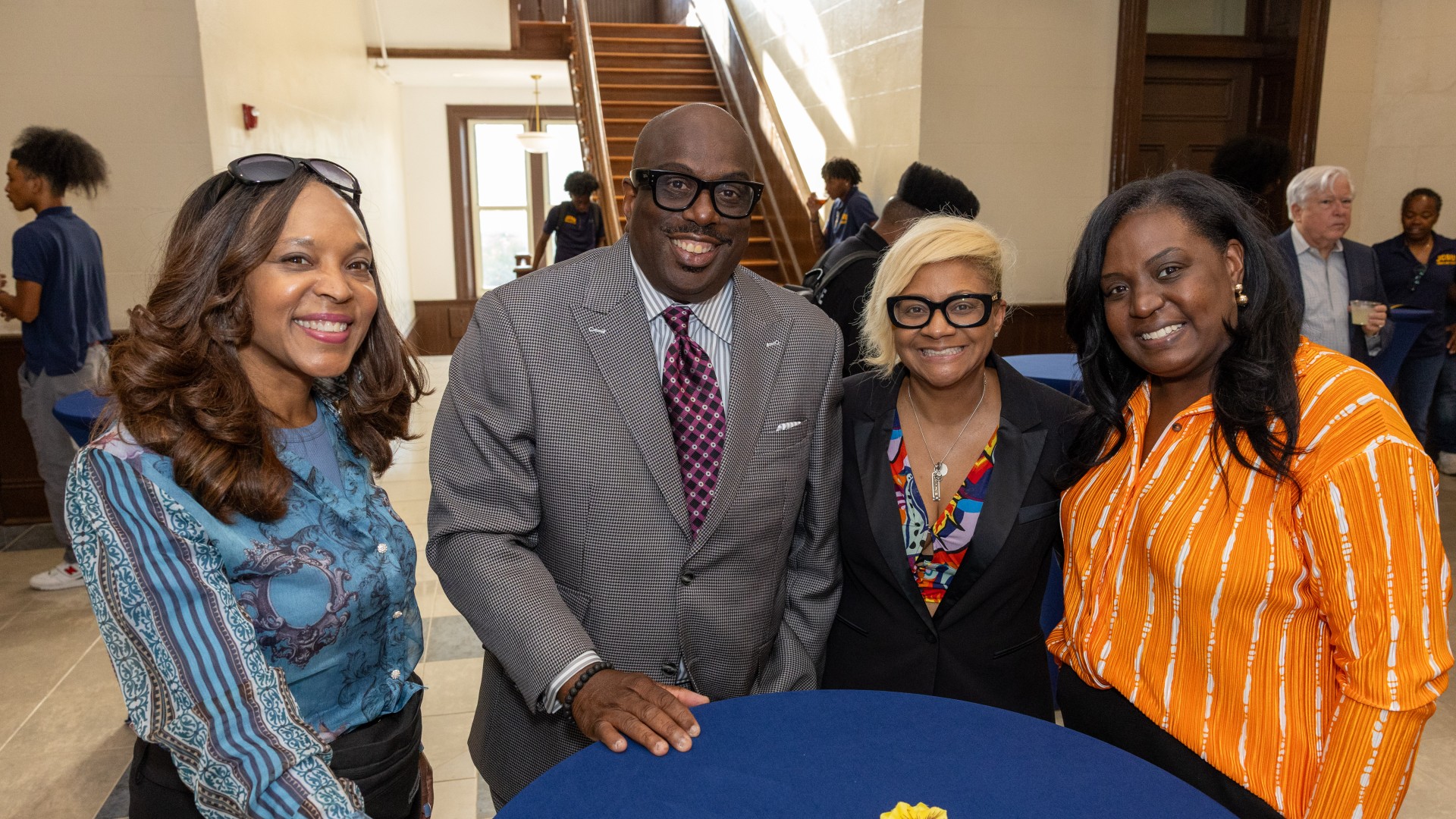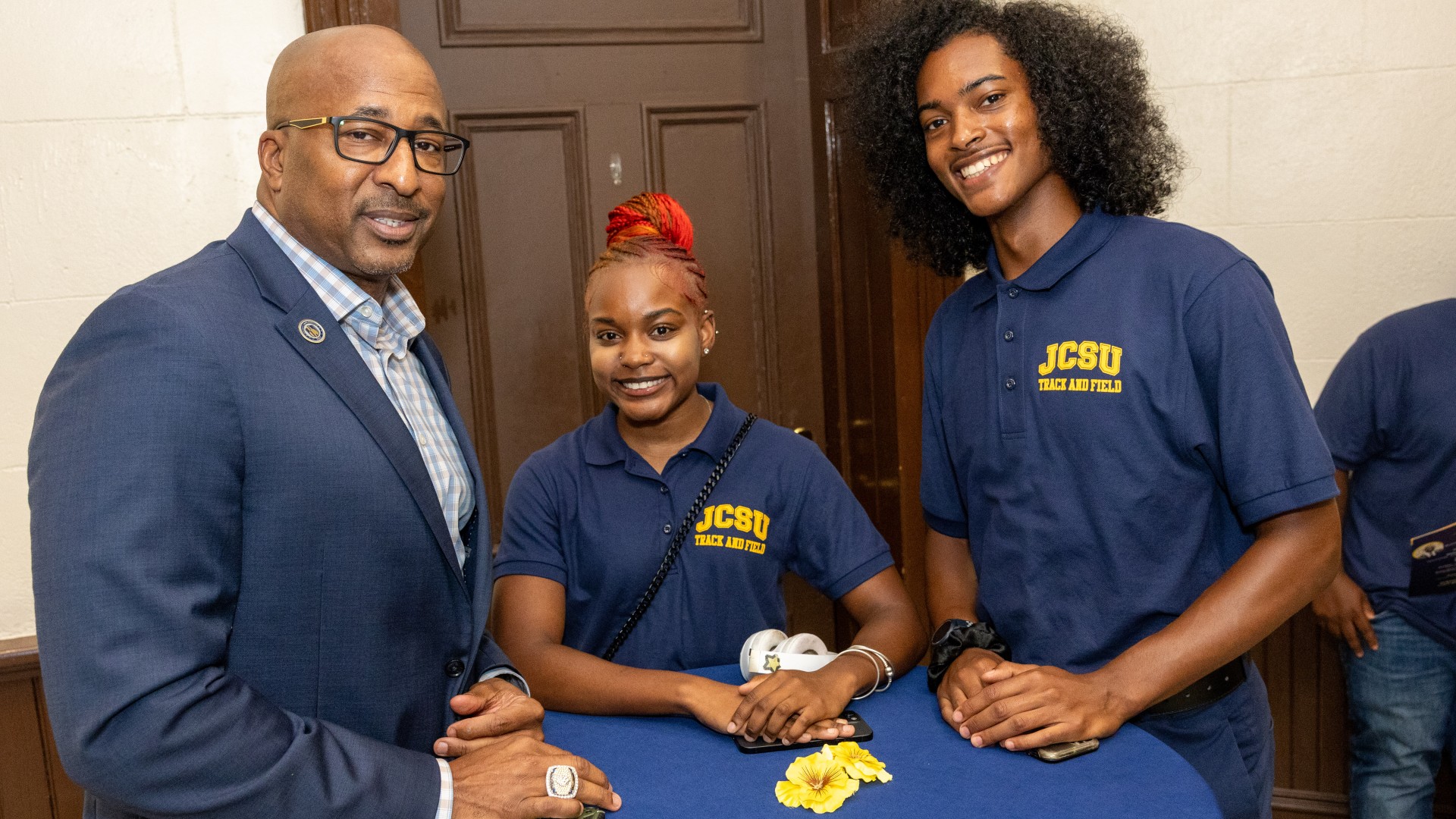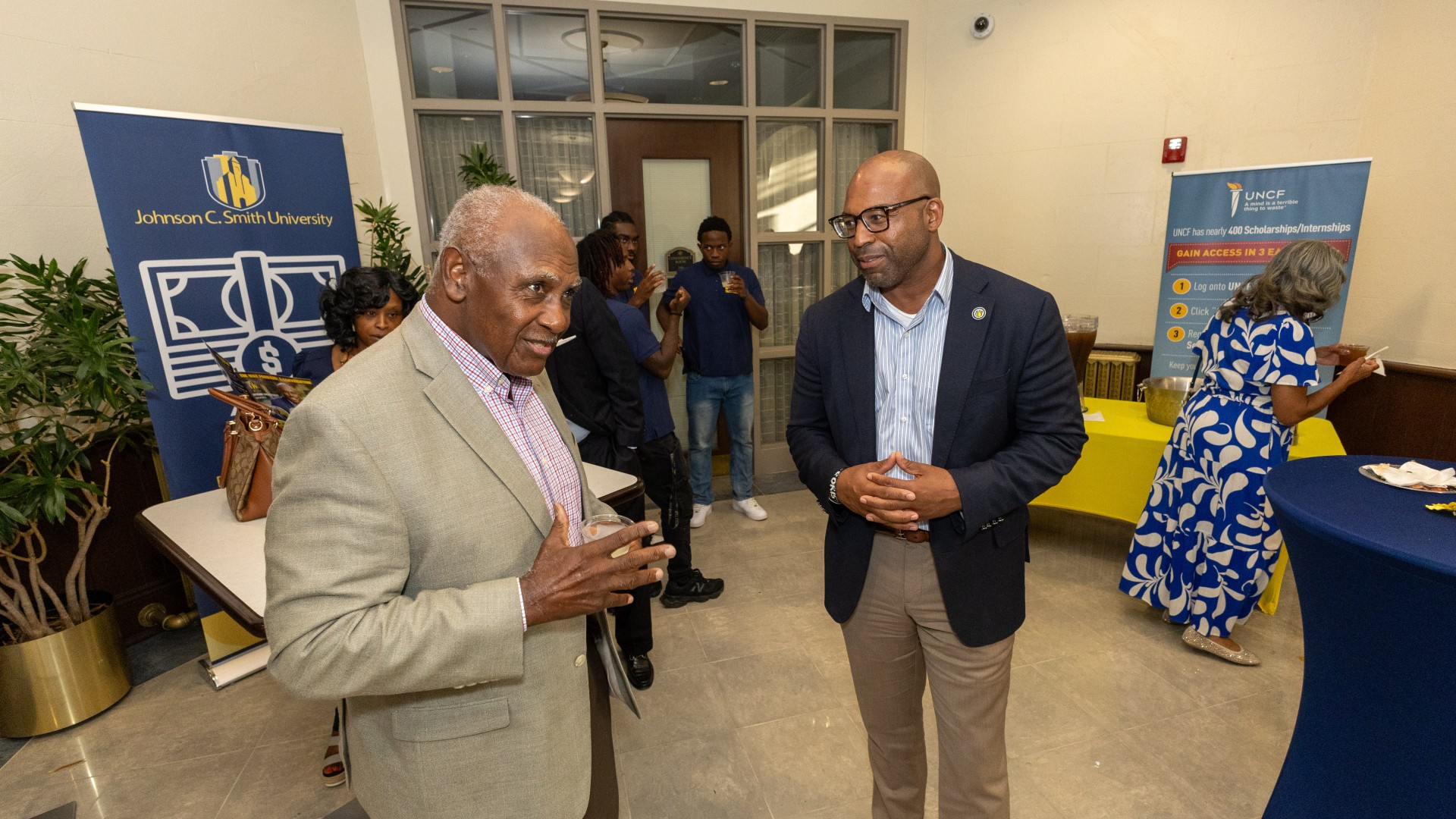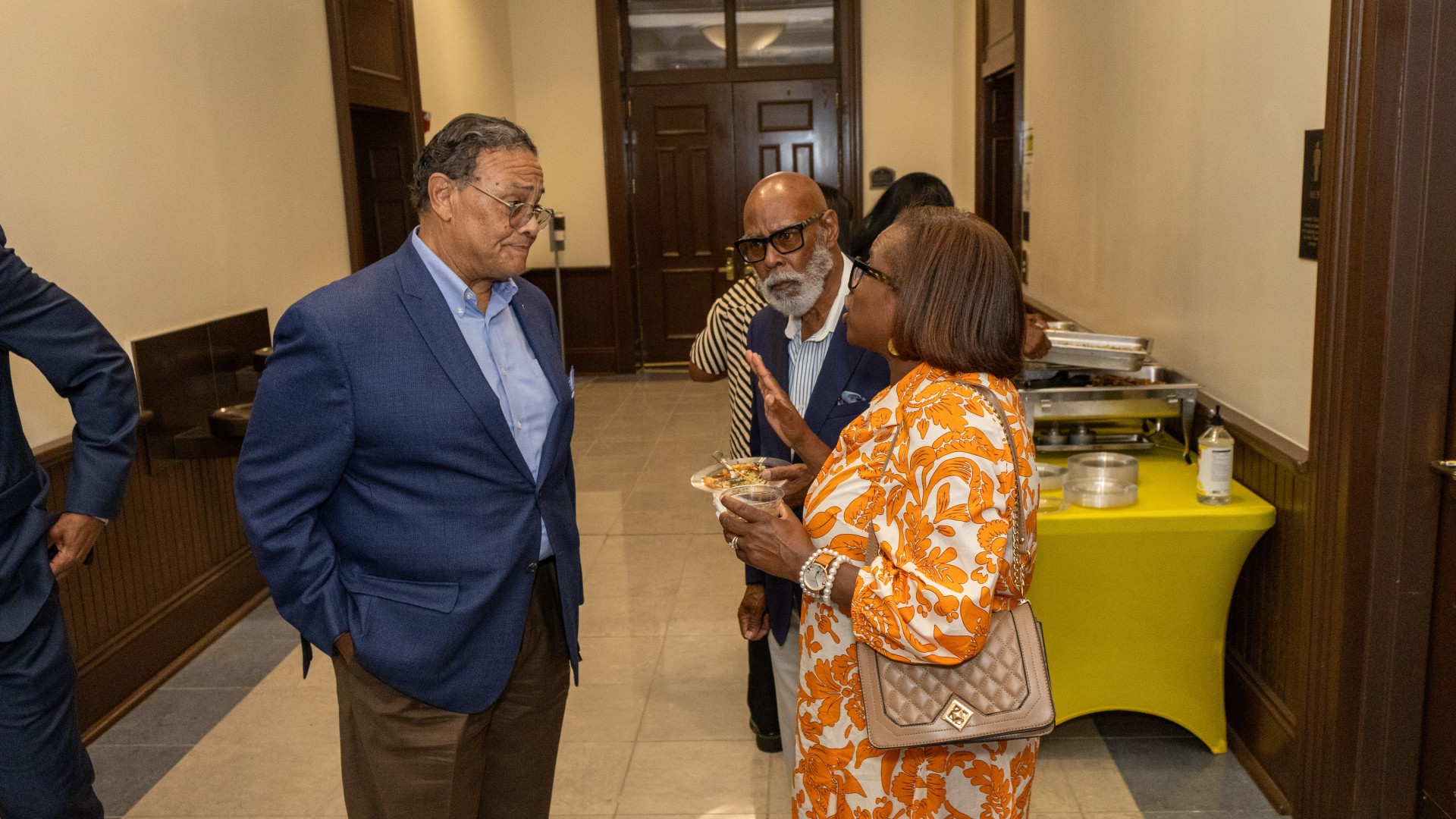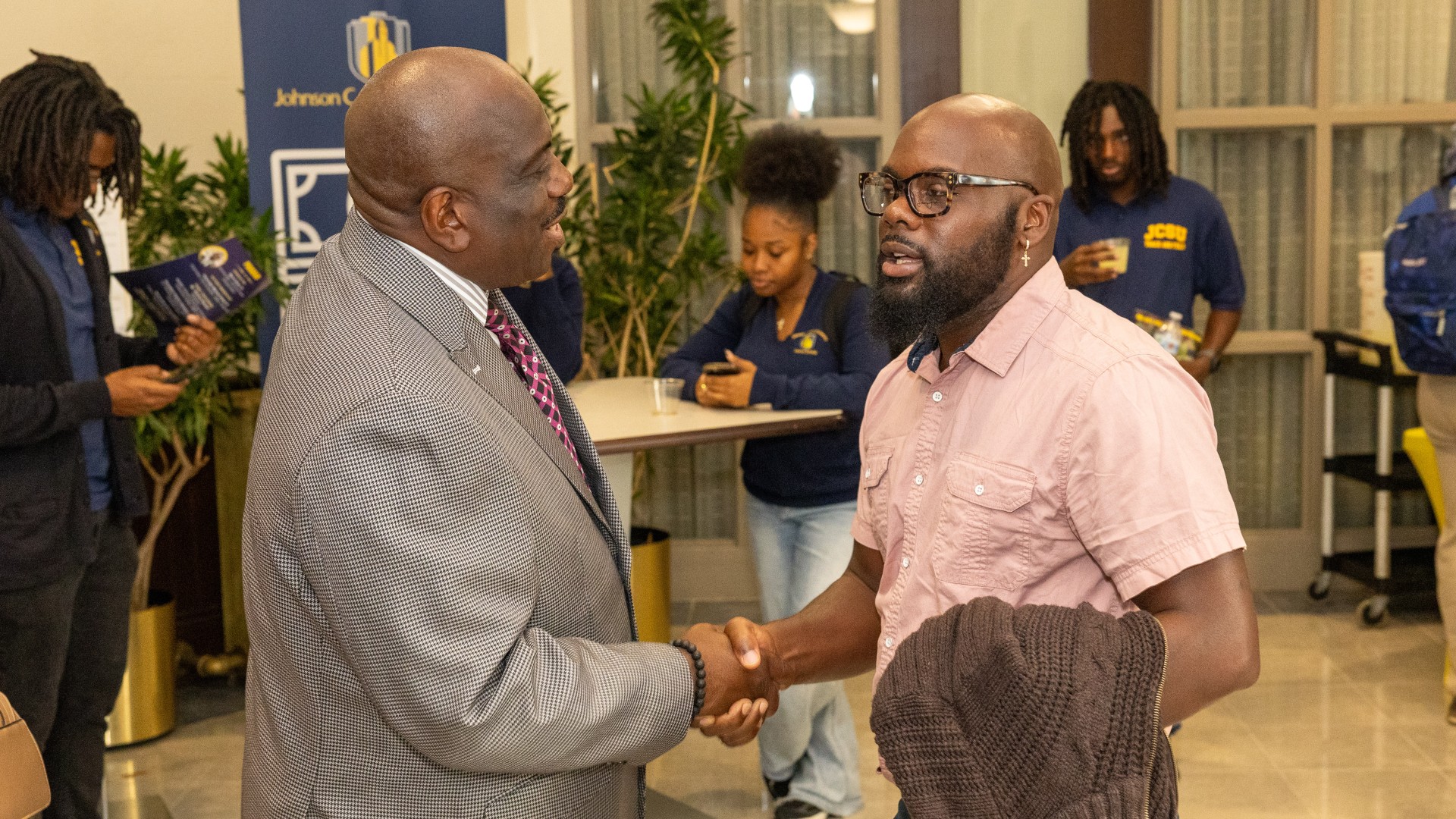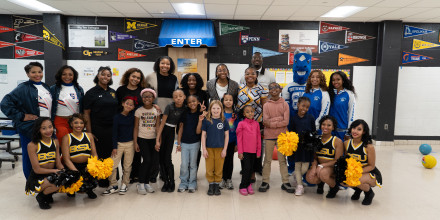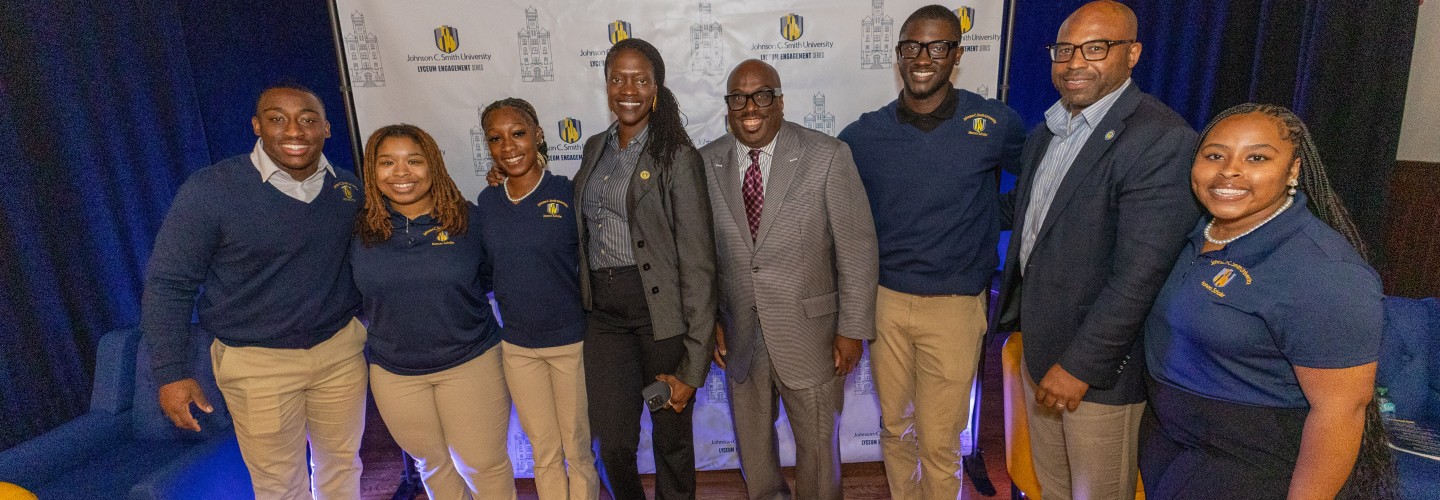
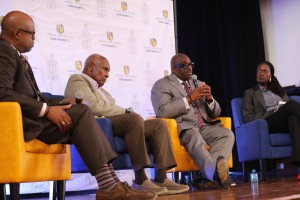
Charlotte, N.C. / September 11, 2025 — On September 11, 2025, the Johnson C. Smith University Office of Institutional Advancement and University Communications and Marketing brought together Charleston-born leaders Councilman Malcolm Graham ‘85, President Valerie Kinloch, Ph.D. ‘96, and the Honorable Harvey Gantt in a powerful dialogue on faith, race, and resilience.
The event, held inside the historic Gambrell Auditorium at Biddle Hall, celebrated Graham’s new book The Way Forward. In the book, a memoir, the Charlotte City Councilman reflects on his life and legacy with older sister, Cynthia Graham Hurd, one of nine worshippers killed in the 2015 tragedy at Mother Emanuel AME Church in Charleston, South Carolina. On 9/11/2025 the auditorium percolated with the energy of hopeful students, supported by a gallery of faculty, alumni, and community members. What soon unfolded was a profound public exchange about tragedy and healing, hope and resilience.
The discussion was moderated by Dedrick Russell, long-time journalist and Executive Producer at WBTV. The evening brought together Graham, Kinloch, and Gantt, three Charleston natives whose lives and work have shaped communities far beyond the Lowcountry. There was a fourth Charlestonian present that night: JCSU senior Marvin Brown, a James B. Duke Scholar and member of the JCSU Honors Program. Brown set the tone for the evening with an inspiring introduction. He described the significance of seeing three Charleston-born history makers—Gantt, Graham, and Kinloch—sharing one stage at JCSU.
“It reminded me that from the pain of tragedy can come purpose,” Brown said. “And from Charleston’s story comes a call for courage.” It’s a sentiment underscored by Dr. Boris Henderson, Interim Vice President of Institutional Advancement who heralded the work of Gantt, Graham and Kinloch from the podium.
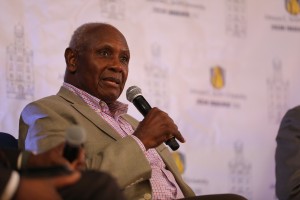
Harvey Gantt, the first African American mayor of Charlotte and a trailblazer in American architecture and politics, began the discussion by recalling the moment he learned of the shooting at Emanuel AME Church ten years ago.
“I remember watching the news and immediately recognizing the church,” Gantt said. “It was a cornerstone of Charleston’s Black community—a sacred place where voices of justice had long been heard. To see it become the site of such violence was heartbreaking.”
Gantt reflected on growing up in Charleston under the shadow of segregation. “Charleston has always been a place of beauty and burden,” he said. “Even then, Black people held more faith in America’s promise than many others. We believed that those rights written in the Constitution would one day apply to us.” The tragedy at Emanuel revealed that “the old hatred still lingers."
For Malcolm Graham, the loss of his sister remains deeply personal—and political. The author, former state senator and Charlotte City Councilman told the audience that his response, in the days after the shooting, was not immediate forgiveness, but reflection.
“Two days after Cynthia was killed, she was still in the morgue,” he said quietly. “That was not the time for forgiving. It was the time for asking hard questions and sitting in the discomfort of the answers.”
Graham’s book, The Way Forward, explores those questions—about race, racism, and responsibility. Graham, like Gantt, spoke of “subtle racism” in Charleston, the kind that hides beneath manners and decorum.
“Things changed on the surface, but beneath it, discrimination lingered,” Graham said. “Charleston has a way of covering pain with charm.” Quoting from his book, Graham reminded the audience of a line that informs his activism: “Tears will get you sympathy, but sweat will get you change.” Graham urged the next generation to do both—honor their faith and take action. “We must dry our eyes and go to work,” he said. “Faith without work is dead.”
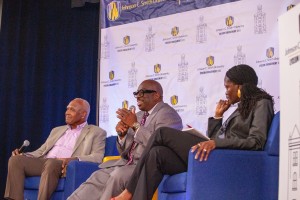
President Valerie Kinloch shared her own vivid memory of that June night in 2015. “I had just been accepted into a leadership institute when I saw the news,” she recalled. “Violence in a church—one of Charleston’s oldest sanctuaries, a symbol of faith and civil rights. I felt disbelief, anger, and heartbreak.” Kinloch spoke candidly about the city’s contradictions: its beauty and its inequity, its charm and its scars.
Dr. Kinloch dug deep to carve out the picture: “For those of us who grew up there, we knew Charleston as a place of struggle,” she said. “The Emanuel tragedy forced us to confront truths that had always been there—the persistence of racism, the weight of history, and the need for accountability.” For Kinloch, healing is an act of remembering with moments of reckoning.
“Healing means sitting in hard truths, asking difficult questions, and refusing easy answers,” she said. “It means honoring those we lost by doing the work they would want us to do—building a more just society for the next generation.”
As the conversation turned to hope, Mayor Gantt reflected on resilience. “Through all the traumas I’ve faced, faith and family made the difference,” he said. “There were moments of deep trial, but never despair. Fellowship and faith sustained me.”
With a similar turn toward healing practices, President Kinloch addressed the importance of mental health and community support. “There’s still hesitation in our communities to talk about mental health,” she said. “But I see hope in our students—they’re speaking up, normalizing what older generations kept quiet. That gives me courage.”
In closing, the panelists emphasized civic engagement as the foundation for transformation. The speakers encouraged the crowd to mobilize for change. “Elections have consequences,” Gantt warned. “And the future depends on how you—our students—choose to shape it.”
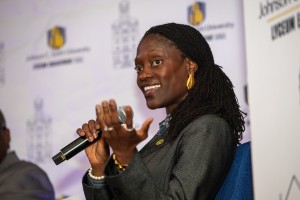
President Kinloch took the torch and issued a call to action. “The path forward must be about coalition-building and boldness,” she said. “Our students’ futures are tied to the world’s future. We must teach them to vote, to lead, to question, and to act.”
This focus on action, gave Graham the final word. “This generation must move from good to great,” he said. “Greatness requires responsibility—and that starts with being engaged voters. We can’t sit on the sidelines while others define our future.”
After a photo finish with selfies on stage - Graham signed books in the Biddle Hall vestibule. The sight called forth a confluence of images: the memory of the gallant formerly enslaved first Biddle students who stacked bricks in the 1880s to build Biddle Hall, the cavalry of Civil Rights icons who mobilized in this very room, and the 21st Century change agents matriculating now, plotting the way forward.


